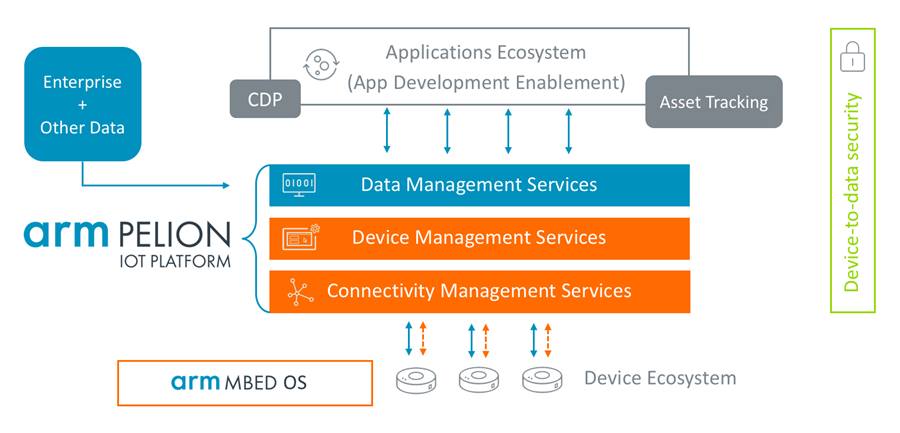Arm Buys Treasure Data and Uses the Technology for New IoT SaaS PlatformArm Buys Treasure Data and Uses the Technology for New IoT SaaS Platform
Arm has announced it's acquired data management company Treasure Data for an undisclosed amount • The technology has already been integrated into a new IoT SaaS platform called "Pelion." • The acquired company will continue to operate as a stand alone independent subsidary.
August 7, 2018

UK-based Arm, the folks behind the Arm chips that power nearly all of the world's smartphones and many Internet of Things (IoT) devices, has acquired Mountain View, CA-based Treasure Data, an enterprise data management company which will continue to operate as an independent subsidiary. Terms of the deal have not been disclosed.
This acquisition falls on the heels of Arm's purchase in June of UK-based Stream Technologies, which develops tools for managing connectivity of IoT devices. The technology Arm acquired from that transaction was incorporated into its Mbed IoT Device Management Platform, a SaaS offering for managing the connectivity of devices without regard to location or network.
"Treasure Data is the final piece of our IoT enablement puzzle," Dipesh Patel, president of Arm's IoT services group, wrote in a blog on Friday. "Its technology, along with that of another recent acquisition (Stream) for connectivity management, combined with Arm Mbed Cloud and our knowledge of the IoT hardware foundation creates something entirely new. We call it the Arm Pelion IoT Platform."
In other words, Arm is rolling the data base management technology it's acquired from Treasure Data into it's Mbed offering to create a new SaaS product for end-to-end IoT device management.
The move, of course, is to strengthen Arm's position in the IoT market, which is regarded as the new frontier of computer tech. Arm and its parent company, Japan-based SoftBank, expect that by 2035 there will be over a trillion connected devices, as nearly all aspects of modern commerce, from robots in manufacturing facilities to cash registers at bricks and mortar retail outlets, move to connect with data centers by way of the cloud. Both Arm (with its technology) and SoftBank (with its Vision Fund Portfolio) would like to have a large chunk of that expanding market.
The Pelion IoT Platform will offer device management, with secure and consistent device provisioning, identity and access management, along with updates for any system set-up; connectivity management that supports a range of wireless standards for any device, region, or use case (including eSIM secure identification); and data management for analysis of trusted data from individual devices, enterprise-wide big data deployments, and third-party sources. The platform can be used on public and private clouds, on-premises and in hybrid environments.
"This will allow companies to quickly turn IoT and enterprise data into insights capable of unlocking new opportunities for them and their customers," Patel said.
The big difference between Pelion and other IoT platforms, according to Patel, is that most platforms focus on specific device classes, specific kinds of data insights, or tie users to specific clouds.
"The linking word here is 'specific,'" he said. "The Pelion IoT Platform is different because it is a truly horizontal platform capable of managing any number or type of devices and connectivity, dealing with any type of data (internal and external) and linking to any cloud. In short, it offers the ability to tie into any device, any data, any cloud."
About the Author
You May Also Like







